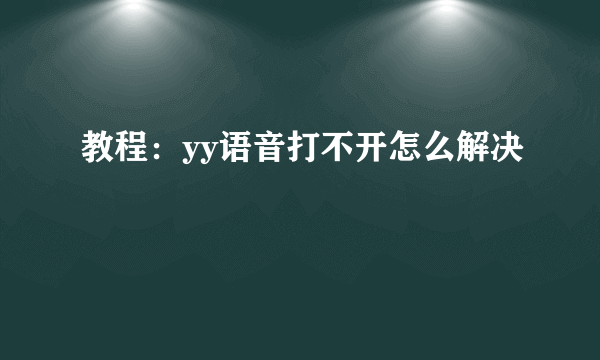
新世纪大学英语_综合教程4_unit1_答案
Working with Words and Expressions
(1)
1. disaster 2. compelled 3. historical 4. disciplined 5. destruction 6. output
7. retreat 8. abandoned 9. trace 10. eternal 11. investment 12. transfer 13.
justify 14. nonetheless 15. contributions 16. accelerate 17. threaten
(2)
1. show signs of 2. called upon 3. off limits 4. in fear of 5. slow down 6.
cut down 7. from head to foot 8. come by 9. lost out 10. As yet 11. reside
in
Increasing Your Word Power
(1)
smoke + fog;
web + log;
breakfast + lunch ;
medical + care ;
motor + hotel;
net + citizen ;
science + fiction;
work + alcoholic
(2)
1. Anthropology: the scientific study of the human race, especially of its
origins, development, customs and beliefs
2. Archaeology: the study of the buried remains of the ancient times, such
3. as houses, pots, tools, and weapons
4. Ecology: the study of the relations of plants, animals, and people to
each other and to their surroundings
5. Geology: the study of rocks, soils, etc. which make up the Earth, and of
their changes during the history of the world
6. Ideology: a set of ideas that an economic or political system is based
on
7. Musicology: the study of the history and theory of music
8. Psychology: the scientific study of the mind and how it influences
behavior
9. Sociology: the scientific study of the nature and development of
society and social behavior
10. Zoology: the scientific study of animals and their behaviour
(3)
1. collective individual
2. consistent contradictory
3. constructive destructive
4. irrational rational
5. modern primitive
6. natural synthetic
7. nearby distant
8. optimistic pessimistic
9. replaceable irreplaceable
10. small enormous
GRAMMAR REVIEW
(1)
1. She wished us health and success in the new year.
2. He asked how we were getting along with our work.
3. Jack said to me that I would be happy to know that his condition had
improved.
4. Rose asked Jack whether he was sure his mother would like the idea.
5. He asked John how long he had been waiting for them.
6. She said I needn't have done all that myself.
(2)
1. The strikers protested to the police that they had no right to arrest them.
2. He promised that he would give us whatever assistance we needed.
3. He agreed (that) that was the best solution to the problem.
4. My sister admitted that it was she who had broken the glass.
5. He declared that he meant what he said and would never go back on his
word.
6. The man insisted that we give an explanation of what had happened.
7. Mrs. Jones complained that no one showed concern for the elderly in
that country.
8. The sales manager explained that he couldn't give us a definite answer
because he had not received instructions from his company.
CLOZE
(1) realm (2) elemental (3) obtain (4) stubbornly (5) transferred (6)
transformed (7) subdued (8) expansion (9) irreplaceable (10) extinct (11)
dynamic (12) verge (13) moderate (14) ecological (15) rational
TRANSLATION
(1)
1. The village is so close to the border that the villagers live in constant
fear of attacks from the enemy.
2. In only twenty years the country was transformed into an advanced
industrial power.
3. This company has evolved into one of the major chemical
manufacturing bases in this region.
4. Given the current financial situation, it is inevitable that the US dollar
will be further devalued.
5. The government's call for suggestions about the control of water
pollution produced very little response from the citizens.
6. The weather showed no signs of getting better so the government
called upon us to get prepared for floods.
7. At one time scientists thought that there was nothing smaller than an
atom but now most people know that an atom consists of even smaller
particles.
8. The students were all very much concerned about the World Cup,
spending at least two hours every day watching the live matches on TV.
9. The department store lost out because loans were very hard to come by
and it could not start business on time.
10. We can't go there for a walk because there is a navy base there, which
is off limits to tourists.
(2)
Human beings live in the realm of nature. They are not only dwellers in
nature, but also transformers of it. With the development of society and
its economy, people tend to become less dependent on nature directly, but
indirectly their dependence grows. Human beings are connected with
nature by "blood" ties. No one can live outside nature. However, the
previous dynamic balance between man and nature has shown signs of
breaking down. Problems such as the population explosion, ecological
imbalance and the shortage of natural resources have become major
factors keeping human society from being further developed. Professor
Spirkin holds that the only choice for human beings is the wise
organization of production and care for Mother Nature.
THEME-RELATED WRITING
My Understanding of Environmental Protection
Man and the environment are closely related. Man relies on the
environment for water, food and shelter. A harmonious relationship
between man and However, man and the environment have never been on
such bad terms as they are now. As society develops, man’s
transformation of nature has severely polluted his living environment.
Deforestation leads to changes in rainfall patterns, causing devastating
floods, droughts and sandstorms. The discharge of chemical pollutants
endangers our health and the lives of other beings. And mass production
has resulted in the shortage of irreplaceable natural resources such as coal
and oil. If we take no immediate and effective steps to protect our
environment, human beings may be the next species to become extinct.
We should do our best to protect our environment by planting
more trees, taking care of wildlife, reducing industrial wastes, using
renewable energy, and imposing heavy fines on
environmentally-unfriendly activities, so as to preserve the environment
for future generations.
不好意思,我们不学新视野,我们学的是英语专业基础英语



